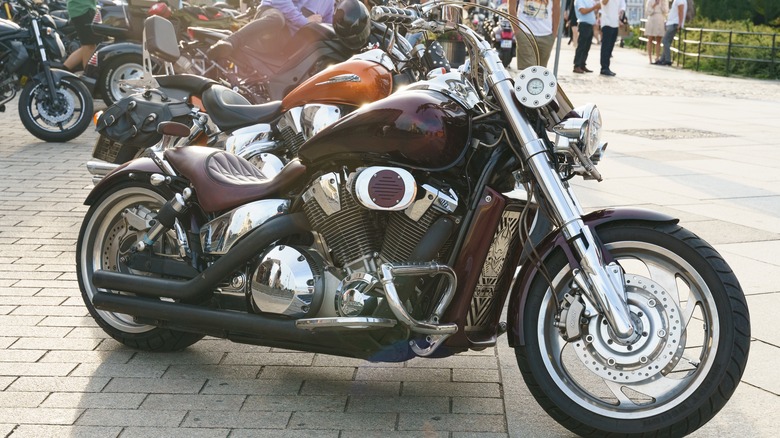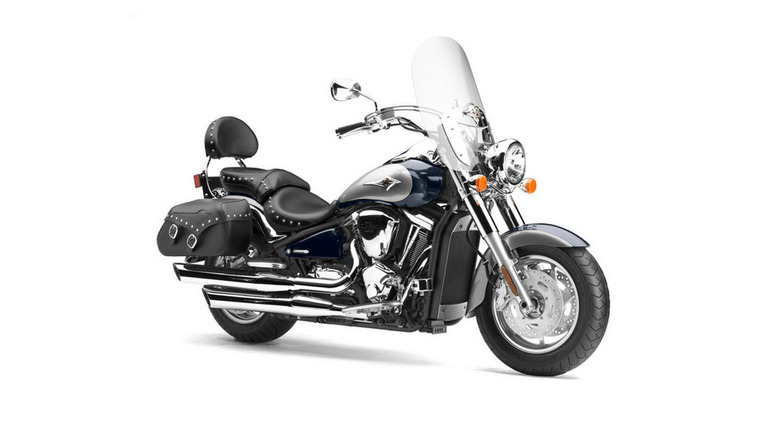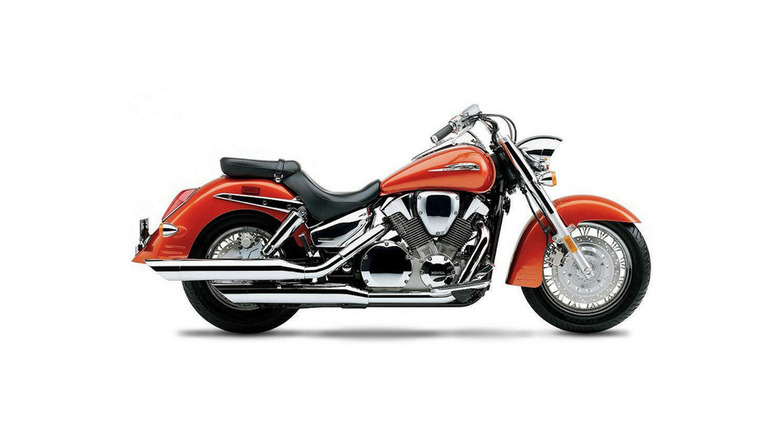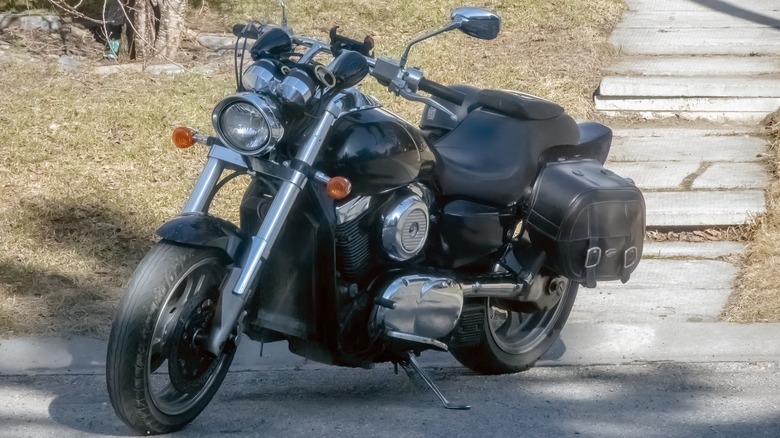Kawasaki Vulcan 2000 Vs. Honda VTX 1800: What's The Difference Between These Bikes?
Shopping for a motorcycle can lead you down a deep rabbit hole as you flip through what all the major brands have to offer. Kawasaki and Honda are two very popular brands, and you can't go wrong with either name whether you're a new or veteran rider. Each manufacturer has plenty of offerings to pick from, and two that might've caught your attention are the Kawasaki Vulcan 2000 and the Honda VTX 1800. On the surface, these are similar bikes with similar performances, but there are a few minor things that set the two apart.
It's important to note that neither bike is in active production, so if you're planning on picking one up you'll have to hit the used market. There's nothing wrong with that, but you'll find something with wear and tear, as well as mileage. There's a lot you have to be aware of when buying a used motorcycle, so make sure you do your due diligence before pulling the trigger.
What's special about the Kawasaki Vulcan 2000?
As the name suggests, the Vulcan 2000 is equipped with a powerful 2000cc engine — 2053cc to be exact — and 141 lb-ft of torque. For its time, the Vulcan 2000 was one of the best motorcycles in production, and it still holds up to this day even if it's missing quality of life features like touchscreen displays. It's a heavy bike at 750 lbs dry weight — much heavier than the Vulcan S of today that has a curb weight of 498.3 lbs. The seat height is rather low at 27.2 inches, so you shouldn't have trouble using your legs at stops if you need to.
With a top speed of 125 mph, the Vulcan 2000 is a fine cruiser once you get used to the weight, even if it doesn't sniff the fastest Kawasaki motorcycles ever built. You can likely find one for well under the original MSRP of $14,449. A 2009 Motorcyclist review of the bike had a lot of good things to say, remarking that it's a big and powerful model competitors should take note of. While this specific model is no longer in production, it's not surprising that people still look back at the Vulcan 2000 fondly.
What about the Honda VTX 1800?
Much like the Vulcan 2000, the VTX 1800 is a bike that's only available on the used market, but it's still a sought-after bike you can get a lot of mileage out of if you find one in good shape. You can snag one for about $5,000 if you look around enough, and that's a solid price for what was once a top of the line motorcycle. Honda's motorcycle has a lot in common with the Vulcan 2000, even the 750 lb dry weight, but there are also some differences.
It has a 1795cc engine that comes with 120 lb-ft of torque, which is still powerful, but just a tad smaller than the Kawasaki. This bike has a seat height of 27.4 inches, so it's another approachable bike for people of most sizes to still hit the ground with their feet. Despite having the smaller engine, the Honda VTX 1800 can get above the 130 mph mark, so it's actually faster than its Kawasaki rival.
Is one bike better than the other?
These are two very similar bikes in both look and performance, so it's tough to go wrong with either of them. In this scenario, it might come down to which one you find for a better price. While the Honda goes faster than the Kawasaki, it's under a 10 mph difference, and you're not going to find yourself going that fast all that often on a highway.
Both are large bikes, but the Honda's design allows it to handle corners a little bit better than the Kawasaki, but it's not by a significant margin by any means. The pair are reliable cruisers, but the Vulcan's larger fuel tank — 5.5 gallons versus 4.8 — lets it handle longer distances better than the Honda. Your choice comes down to personal preference, and both would be fine picks if you find one in good shape on the used market.
The VTX series began in 2001 and ran until 2009 while the Vulcan line goes back to the '80s and is still going today. This means you might have a better time finding a Vulcan for cheap, even if it's not a Vulcan 2000.



